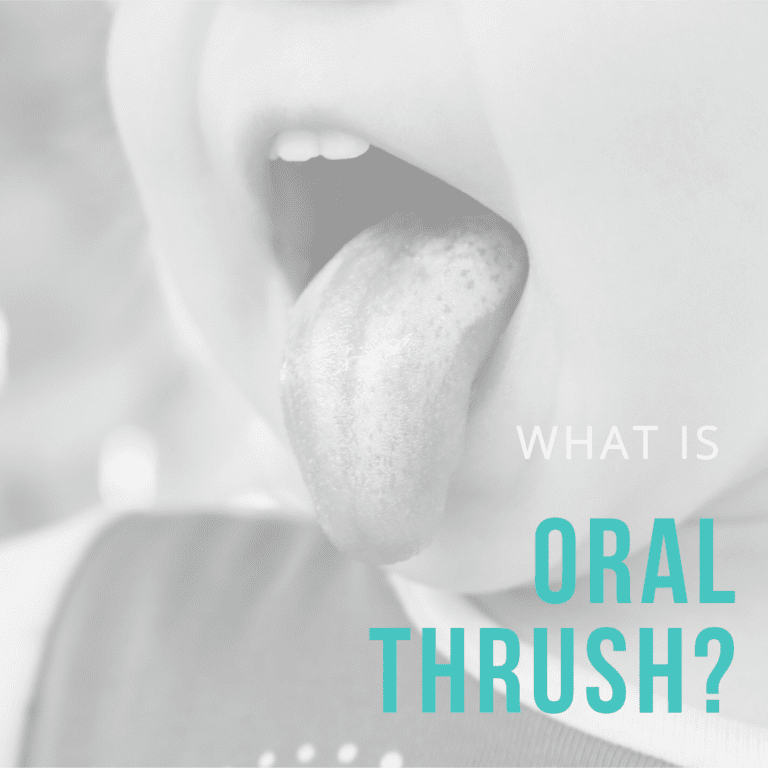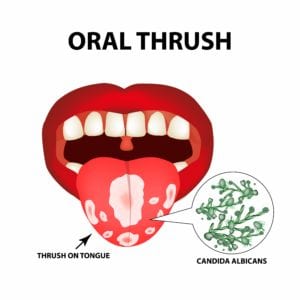What is Oral Thrush?

Did you know that your mouth has naturally-occurring bacteria that can cause tooth decay when the population increases to excessive levels? While you may or may not be aware of this, you are probably not aware of the fact that your mouth can also be affected by fungus as well. In fact, the yeast fungus Candida can cause an infection known as Candidiasis, or oral thrush.
Like the naturally-occurring bacteria in your mouth, Candida resides in the mouth, throat, gut, and vagina normally and without issues. However similar to bacteria, problems can arise when Candida multiplies to excessive levels. The result is an infection that ultimately leads to fungal growth in the mouth.
When this fungal growth occurs in the mouth and throat, it is called oropharyngeal candidiasis, or oral thrush. There are a few different symptoms of oral thrush, including:

- White patches on the soft tissues of the mouth that look like cottage cheese
- Redness or soreness
- Cotton-like feeling in the mouth
- Loss of taste
- Pain while eating or swallowing
- Redness, irritation, or pain under dentures
Most cases of oral thrush can be diagnosed through a simple examination of the mouth. However some cases may require the use of a biopsy to confirm the presence of the fungus responsible for the infection. Once diagnosed, most oral thrush cases can be easily treated with various antifungal medications and mouthwashes.
It is also important to note that oral thrush is uncommon in healthy adults. Most cases of oral thrush affect:
- Babies under 1 month of age
- People with diabetes, cancer, or HIV/AIDS
- People taking antibiotics or corticosteroids, as well as medications that cause dry mouth
- Smokers
- People with dentures
When oral thrush occurs in people with dentures, it is referred to as denture stomatitis. Your dentist will evaluate your mouth for possible cases of denture stomatitis by removing your dentures and looking for signs of redness. The vast majority of cases occur in the upper denture due to its closed-palate design, however it is possible to develop denture stomatitis in the lower denture as well.
The most common cause of oral thrush in denture wearers is forgetting to remove their dentures at night and inadequate cleaning. To prevent denture stomatitis, it is highly important to remove your dentures every night. This is especially important for the upper denture. Additionally, you will need to make sure that you are using the proper cleaning technique to regularly clean the dentures.
This means that you will need to rinse your dentures and clean your mouth after every meal. You will also need to clean the dentures every night using a denture brush and cleanser to gently scrub all the grooves in the denture lining. Finally, rinse the dentures and store them in water or denture solution until morning. In the morning, rinse them one last time before placing them in the mouth.
Oral thrush is a fungal infection that is caused by an overproduction of a naturally-occurring fungi. This overgrowth causes fungal growth in the mouth that affects babies and adults with compromised immune systems. Additionally, it can also affect denture wearers and is known as dental stomatitis. Ultimately, oral thrush can be treated with antifungal medications and prevented with proper oral hygiene and regular denture cleaning.






Recent Comments